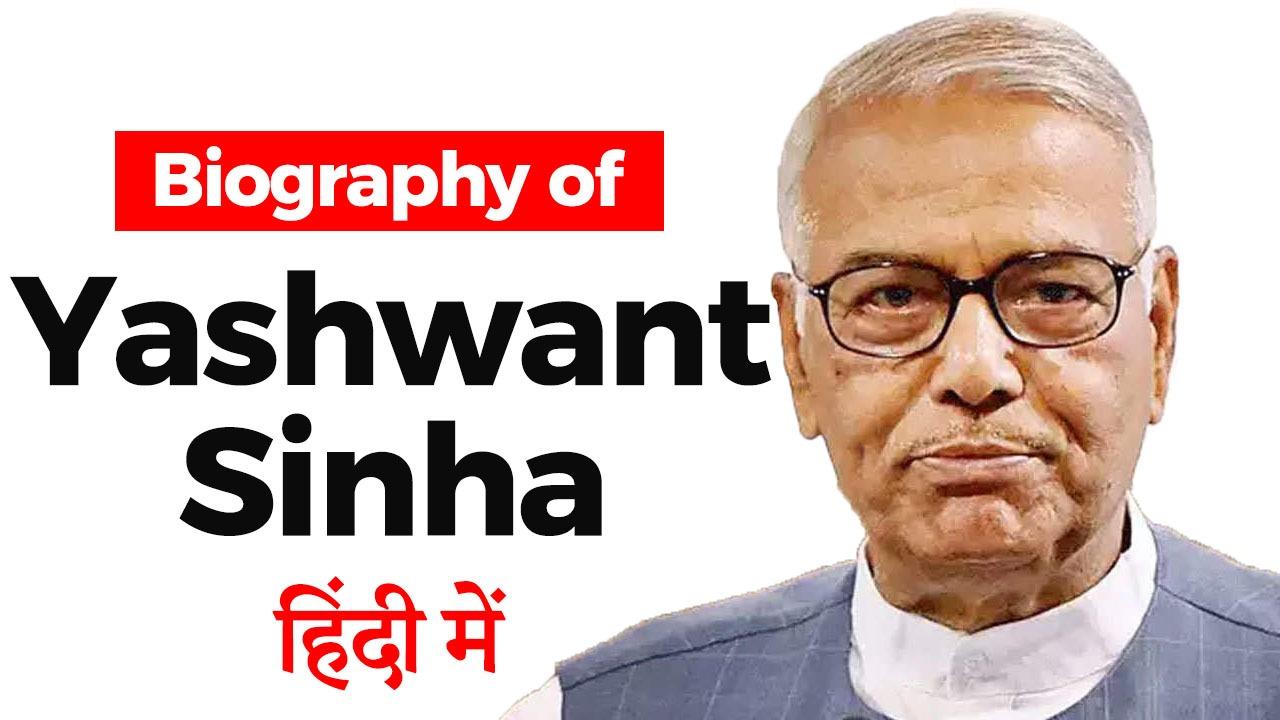Table of Contents
EARLY LIFE
- Sinha was born in Patna, Bihar.He received his master’s degree in Political Science in 1958. Subsequently, he taught the subject at the University of Patna till 1962
- Sinha joined the Indian Administrative Service in 1960 and spent over 24 years holding important posts during his service tenure.
- From 1971 to 1973, he was First Secretary (Commercial) in the Indian Embassy, Bonn, Germany. Subsequently, he worked as Consul General of India in Frankfurt from 1973 to 1974.
POLITICAL CAREER
- He later was Joint Secretary to Government of India in the Ministry of Surface Transport from 1980 to 1984, his main responsibilities were road transport, ports, and shipping. He resigned from service in 1984.
- He was appointed All-India General secretary of the party in 1986 and was elected Member of the Rajya Sabha in 1988.
POLITICAL CAREER
- When the Janata Dal was formed in 1989, he was appointed General Secretary of the party. He worked as Minister of Finance from November 1990 to June 1991 in Chandra Shekhar’s Cabinet.
- He became the National Spokesperson of the Bharatiya Janata Party in June 1996. He was appointed finance minister in March 1998.
- He was appointed as Minister for External Affairs on 1 July 2002. In the Lok Sabha elections of 2004.On 13 June 2009, he resigned from the post of vice-president of BJP.
POLITICAL CAREER
- Sinha was the finance minister until 1 July 2002, when he exchanged jobs with foreign minister Jaswant Singh. Sinha, during his tenure, was forced to roll back some of his government’s major policy initiatives for which he was much criticised.
- Still, Sinha is widely credited for pushing through several major reform measures that put the Indian economy on a firm growth trajectory. Among them are lowering of real interest rates, introducing tax deduction for mortgage interest, freeing up the telecommunications sector, helping fund the National Highways Authority, and deregulating the petroleum industry.
POLITICAL CAREER
- Sinha was the finance minister until 1 July 2002, when he exchanged jobs with foreign minister Jaswant Singh. Sinha, during his tenure, was forced to roll back some of his government’s major policy initiatives for which he was much criticised.
- Still, Sinha is widely credited for pushing through several major reform measures that put the Indian economy on a firm growth trajectory. Among them are lowering of real interest rates, introducing tax deduction for mortgage interest, freeing up the telecommunications sector, helping fund the National Highways Authority, and deregulating the petroleum industry.
POLITICAL CAREER
- Yashwant Sinha has been accused by opponents, and by other political observers of trying to promote nepotism by nominating his son Jayant Sinha as a successor to contest from Hazaribagh.






















 WhatsApp
WhatsApp